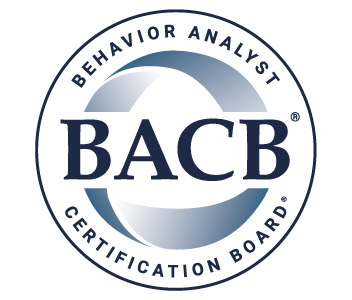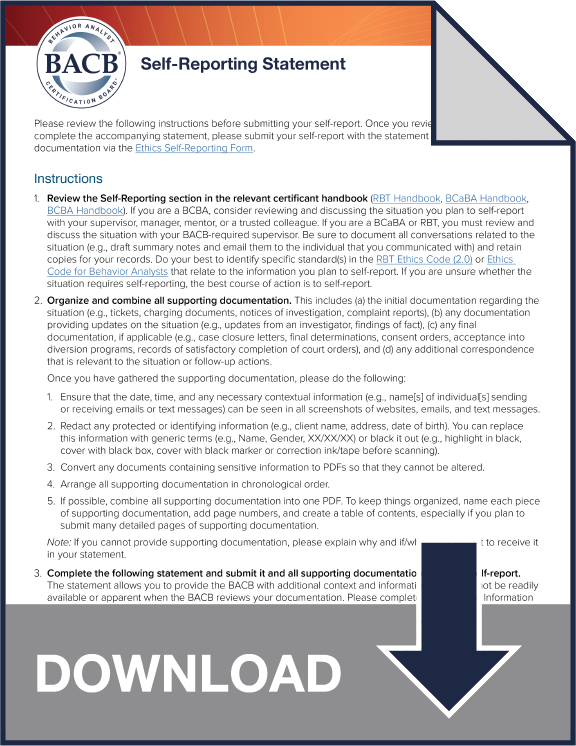In accordance with the BACB ethics requirements outlined in the Ethics Code for Behavior Analysts and the RBT Ethics Code (2.0), applicants and certificants must provide the BACB with information that could impact its ability to effectively communicate with them or that might influence their certification status. For more information and guidance about the specific events that must be self-reported, please review the Self-Reporting sections of the BCBA, BCaBA, or RBT Handbook.
Need to change your name, address, or email?
You are not required to self-report changes to your name, address, or email to the BACB. Instead, you are obligated to ensure that your personal information is correct and that you update the information through your BACB Account, within 30 days of the change or becoming aware of the outdated information.
Need to report critical or required events or information about yourself?
Self-reporting requires that you report professional and personal conduct, or conditions that could pose a risk to others. This includes, but is not limited to, matters related to your role as a service provider; supervisor; educator; trainer; or business owner/manager of any organization or company that provides behavior analysis services, supervision, education, and/or training. You can find specific information about each of the categories below, as well as some examples of things that do not need to be self-reported, in the Self-Reporting sections of the BCBA, BCaBA, or RBT Handbook. The main categories of events that must be self-reported include:
- VIOLATIONS OF ETHICS STANDARDS: You believe that you violated any standard in the applicable ethics code for your BACB certification (e.g., Ethics Code for Behavior Analysts or the RBT Ethics Code [2.0]).
- PHYSICAL OR MENTAL HEALTH CONDITIONS & SUBSTANCE USE DISORDERS: You have a physical or mental health condition or substance use disorder that meets the self-reporting requirements.
- INVESTIGATIONS: You, or a company for which you are the owner or hold a primary role related to the matter investigated (e.g., billing, clinical quality control) are named in an investigation. You must self-report within 30 days of when you become aware that an investigation is being conducted. Do not wait until the conclusion of the investigation.
- AGREEMENTS and ACTIONS: You receive an order from the court, civil or criminal charges, final determination, or disposition, or you sign an agreement or consent order related to a qualifying event. You must self-report within 30 days of receipt or of signing.
How to Self-Report
Download, review, and complete the Self-Reporting Statement. Be sure to keep it handy, as you will be required to submit it with the following Ethics Self-Reporting Form. Do not complete a Notice of Alleged Violation for yourself. Depending on the information you self-report to the BACB, additional documentation or actions may be required (e.g., verification of competence).
The BACB cannot provide legal or ethics advice under any circumstances. There are a number of resources available for anyone seeking guidance related to ethics in the Ethics Resources section. U.S. residents of states that regulate the practice of behavior analysis may contact their state disciplinary boards. For more information about regulation in the U.S., the Association of Professional Behavior Analysts has a resource page on licensure and regulation. Whenever possible, we encourage, but do not require you to consult with a behavior analyst who specializes in the matter before filing a Notice of Alleged Violation. For legal advice, please consult with a licensed attorney in your jurisdiction. For additional guidance on ethics-related matters, please see the Ethics Codes section.

